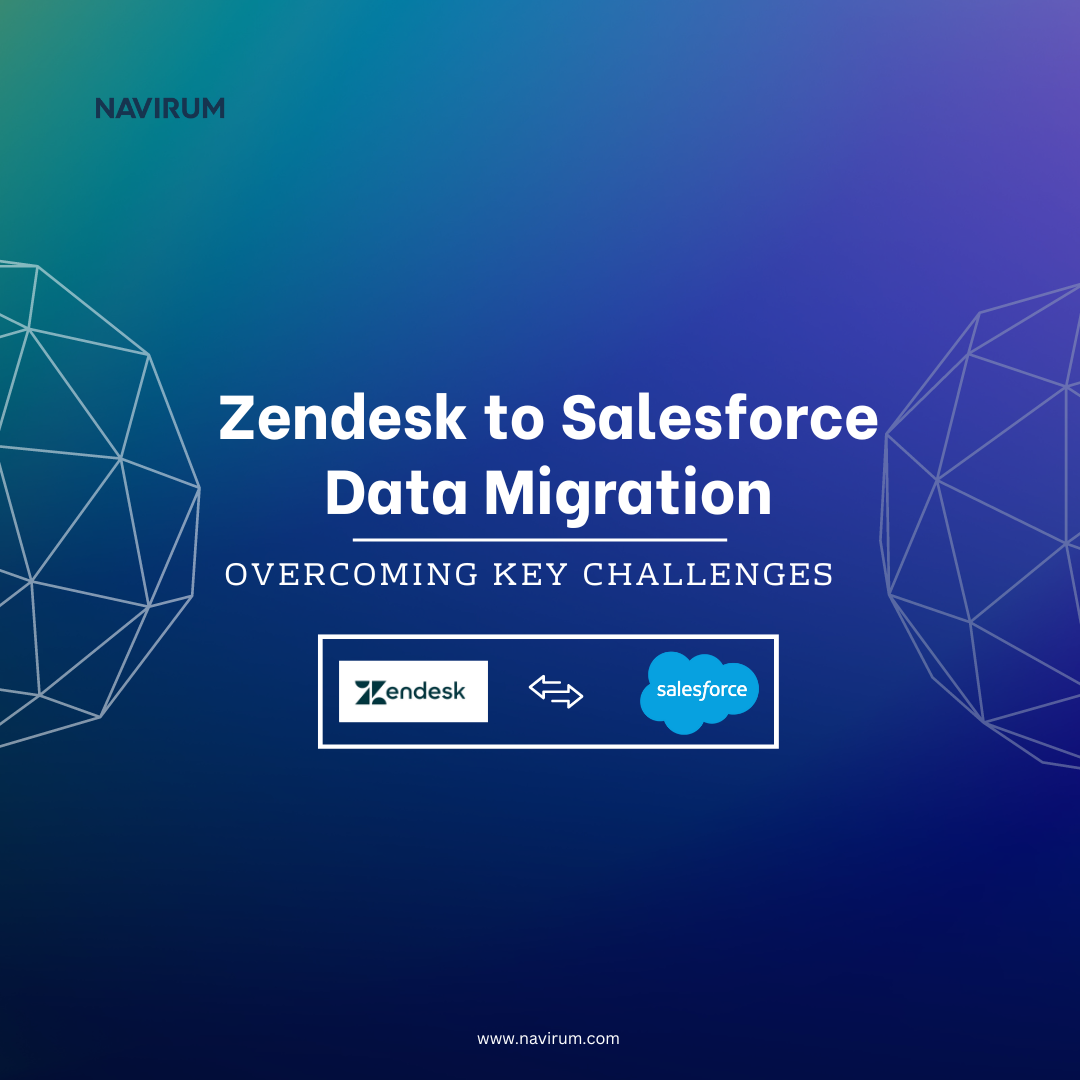Zendesk to Salesforce migration is not always a smooth transition, as overcoming key challenges requires preparation. Salesforce offers a comprehensive suite of CRM solutions that go beyond traditional customer support offered by Zendesk, encompassing sales, marketing, service, analytics, and more within a single platform.
With its highly customizable and scalable architecture, Salesforce empowers organizations to tailor their CRM to meet unique business needs, automate processes, and drive productivity.
Additionally, Salesforce’s robust ecosystem of third-party integrations, extensive community support, and continuous innovation through regular updates and new features make it a preferred choice for businesses seeking a versatile and future-proof CRM solution that can grow alongside their evolving requirements.
Migrating from Zendesk to Salesforce can be a complex process, and several challenges may arise during the migration. Some of the major issues encountered include:
- Data Mapping and Mapping Complexity: Mapping data from Zendesk to Salesforce can be challenging due to differences in data structure, field names, and formats between the two platforms. Ensuring accurate mapping while preserving data integrity is crucial but can be time-consuming.
- Customization and Configuration: Zendesk and Salesforce have different customization options and configurations. Translating custom fields, workflows, automations, and business processes from Zendesk to Salesforce requires careful planning and may encounter challenges, especially if the configurations are complex or highly customized.
- Data Cleansing and Quality: Migrating clean and accurate data is essential for a successful migration. However, data in Zendesk may contain inconsistencies, duplicates, or outdated information. Data cleansing efforts, such as deduplication, normalization, and data validation, may be necessary to ensure data quality before migrating to Salesforce.
- Integration with Other Systems: If Zendesk is integrated with other systems or third-party applications, such as CRMs, ERP systems, or ticketing systems, migrating to Salesforce may disrupt these integrations. Ensuring seamless integration and data flow between Salesforce and other systems is critical to maintain business continuity.
- User Training and Adoption: Salesforce is a different platform with its own interface, navigation, and features compared to Zendesk. User training and adoption may be a significant blocker, especially if users are accustomed to Zendesk’s interface and workflows. Providing comprehensive training and support resources can help mitigate this challenge.
- Change Management: Migrating from one platform to another requires organizational change management to address resistance to change, align stakeholders, and manage expectations. Lack of buy-in from key stakeholders or resistance from users can impede the migration process.
- Migration Downtime and Business Impact: Migrating data and transitioning to Salesforce may require downtime or disruptions to normal business operations, which can impact productivity, customer service, and revenue generation. Minimizing downtime and mitigating the potential business impact is essential during the migration process.
Addressing these challenges requires careful planning, collaboration between stakeholders, and leveraging expertise in both Zendesk and Salesforce platforms. Our experienced migration consultants can help you navigate these blockers and ensure a smooth transition from Zendesk to Salesforce.

